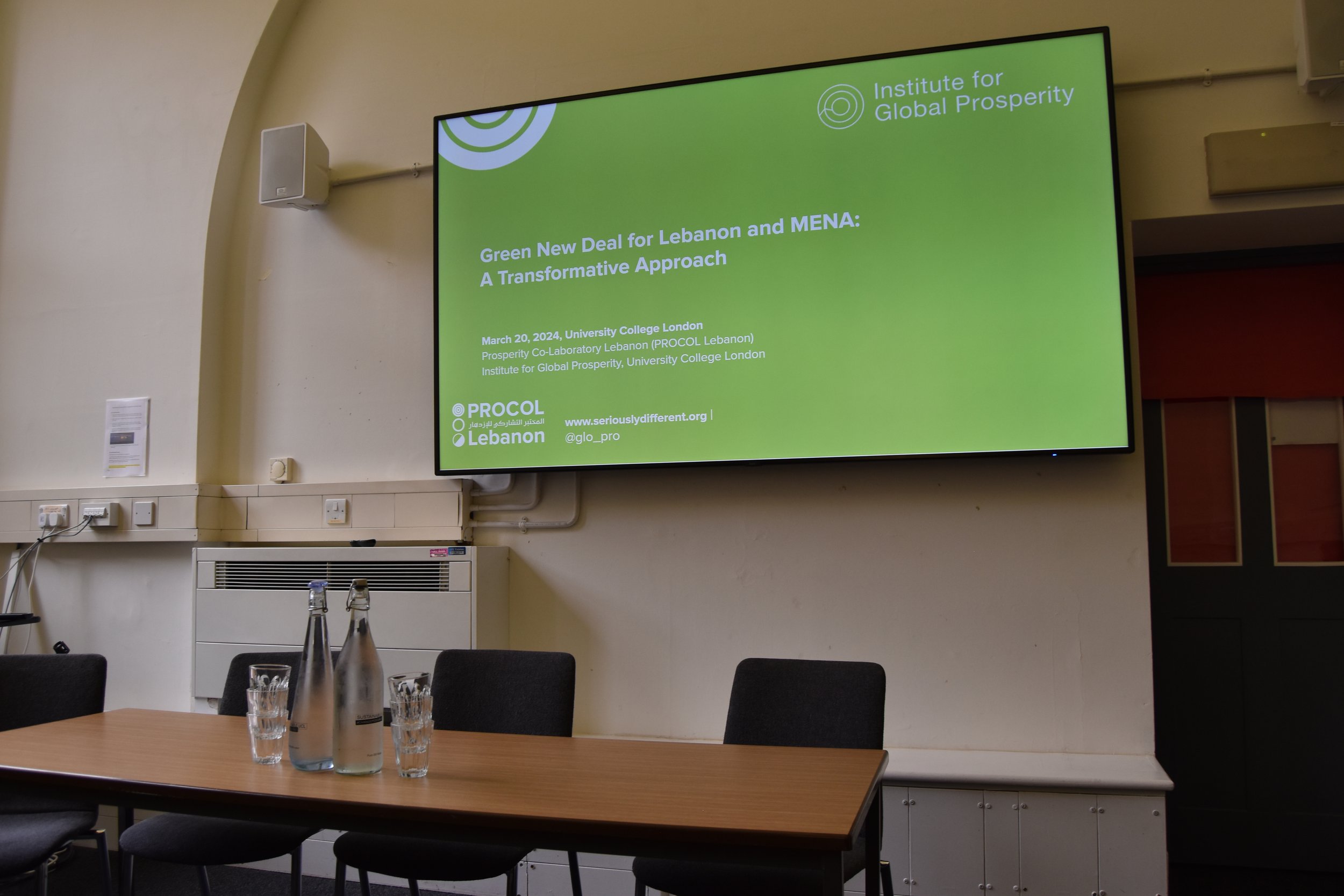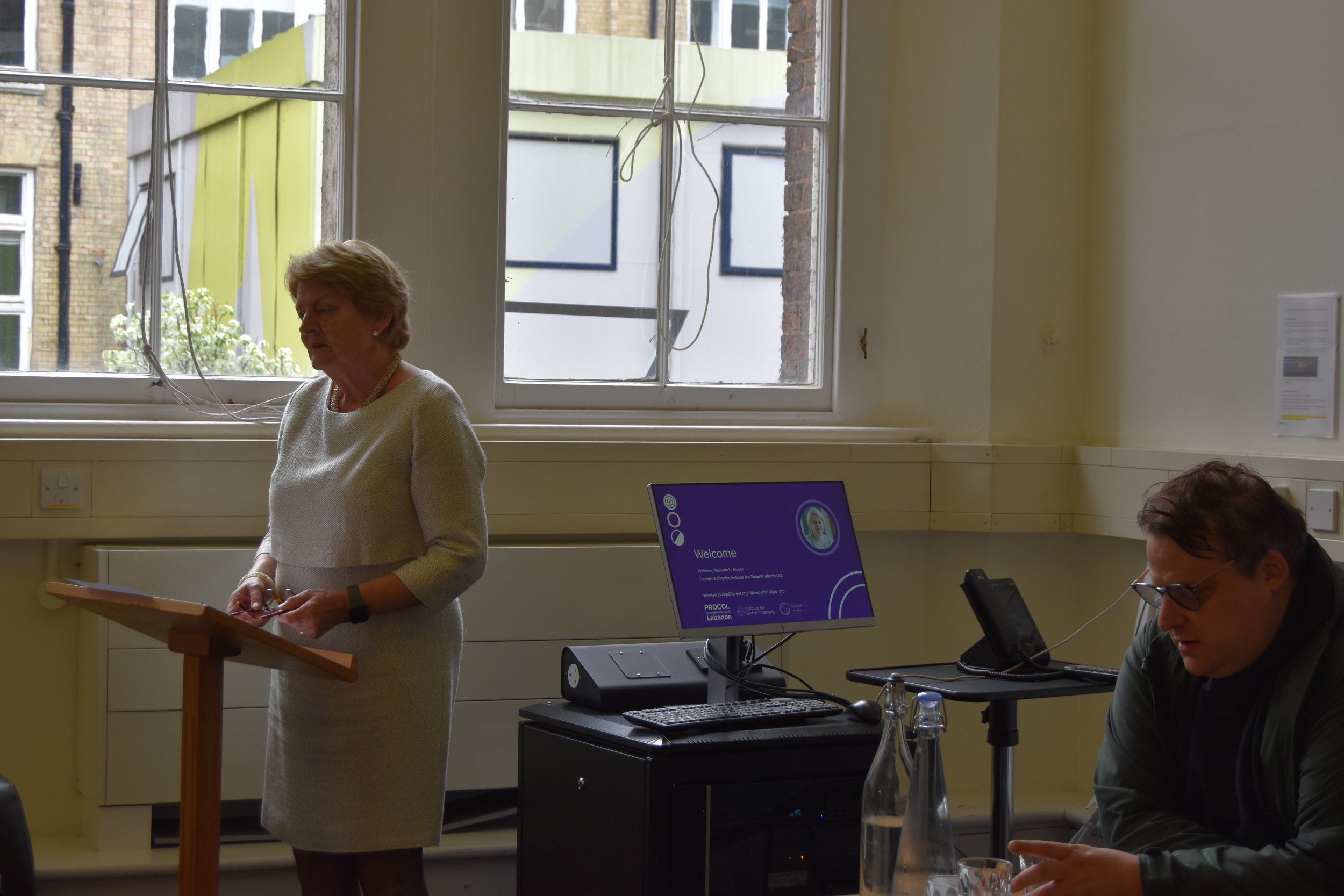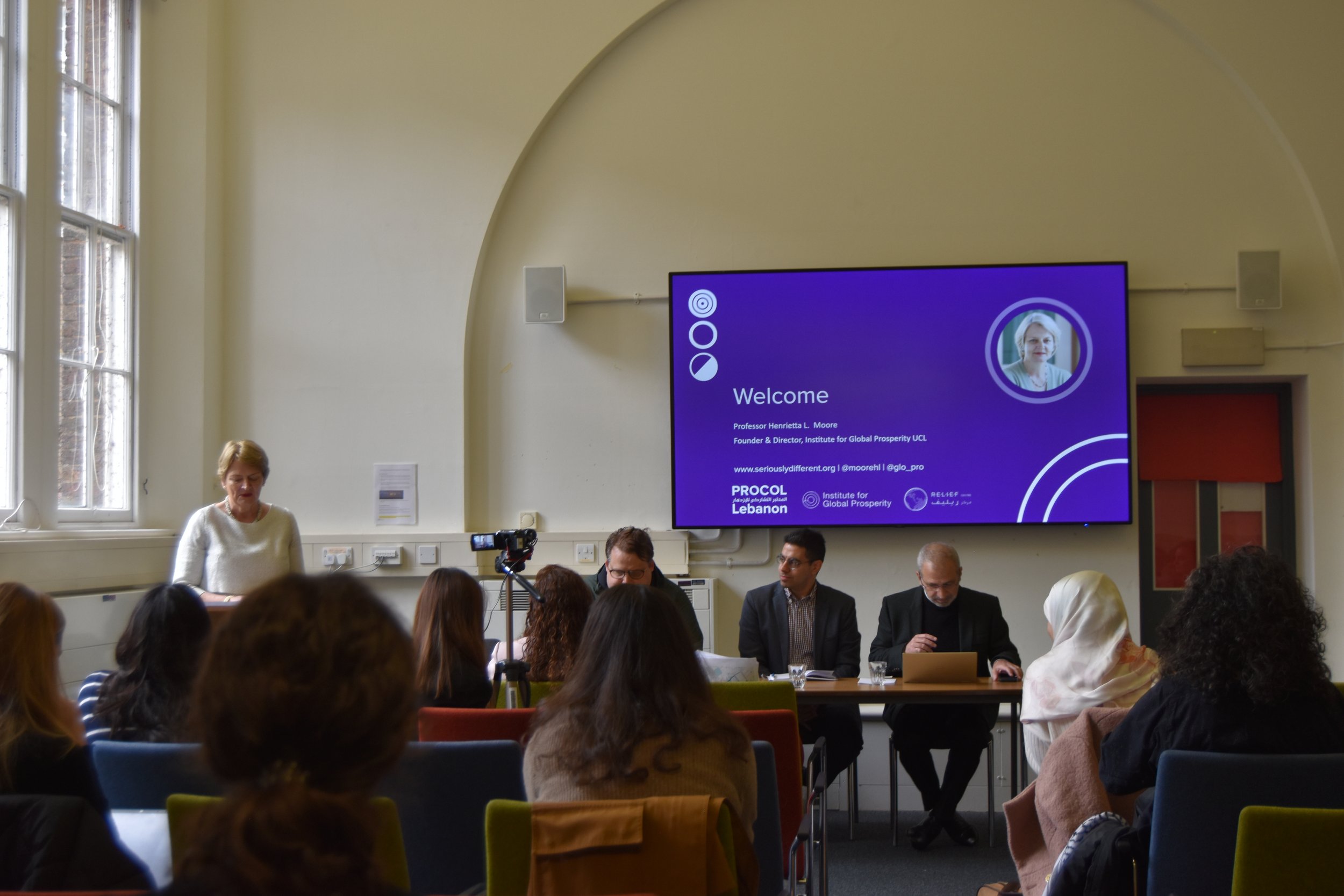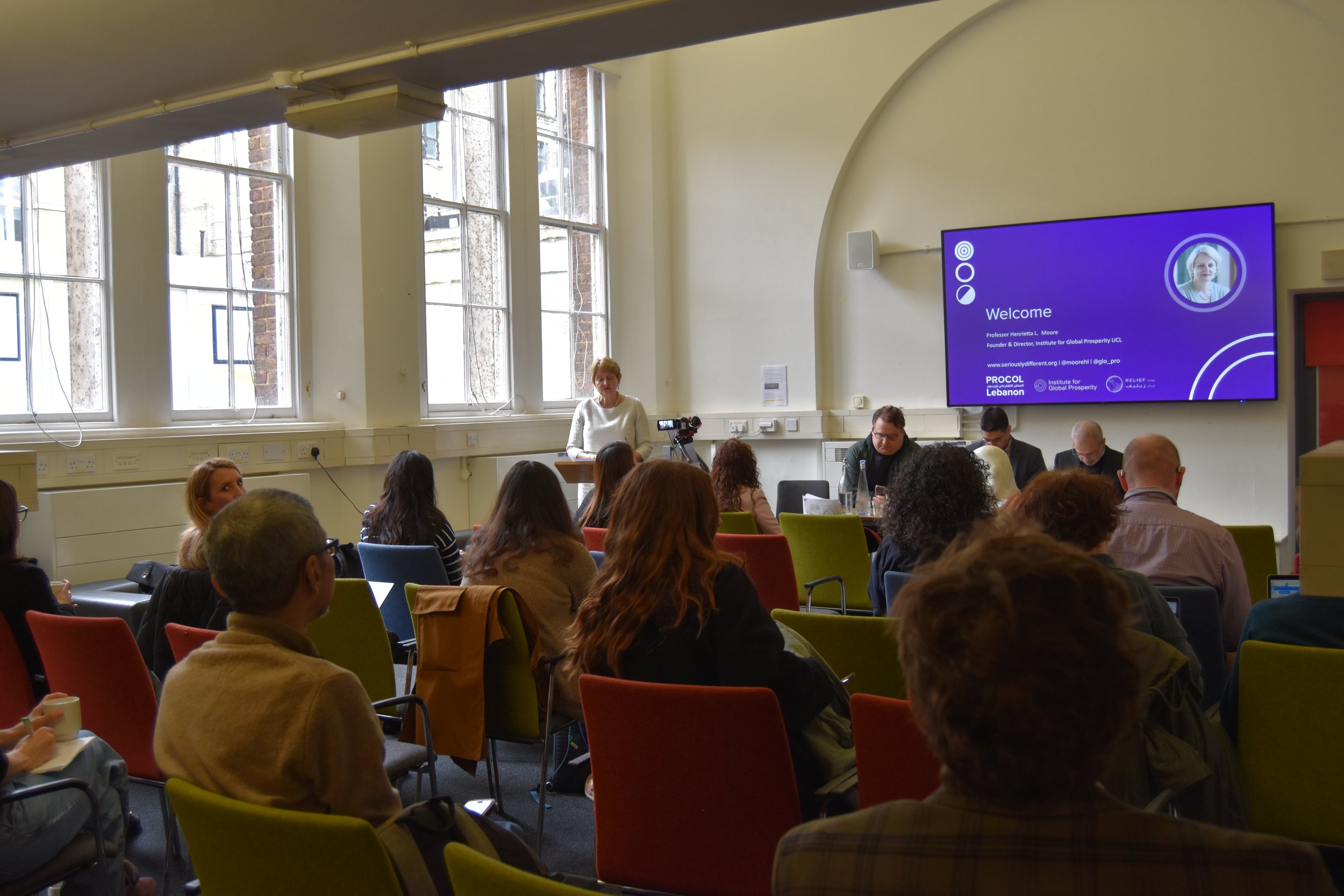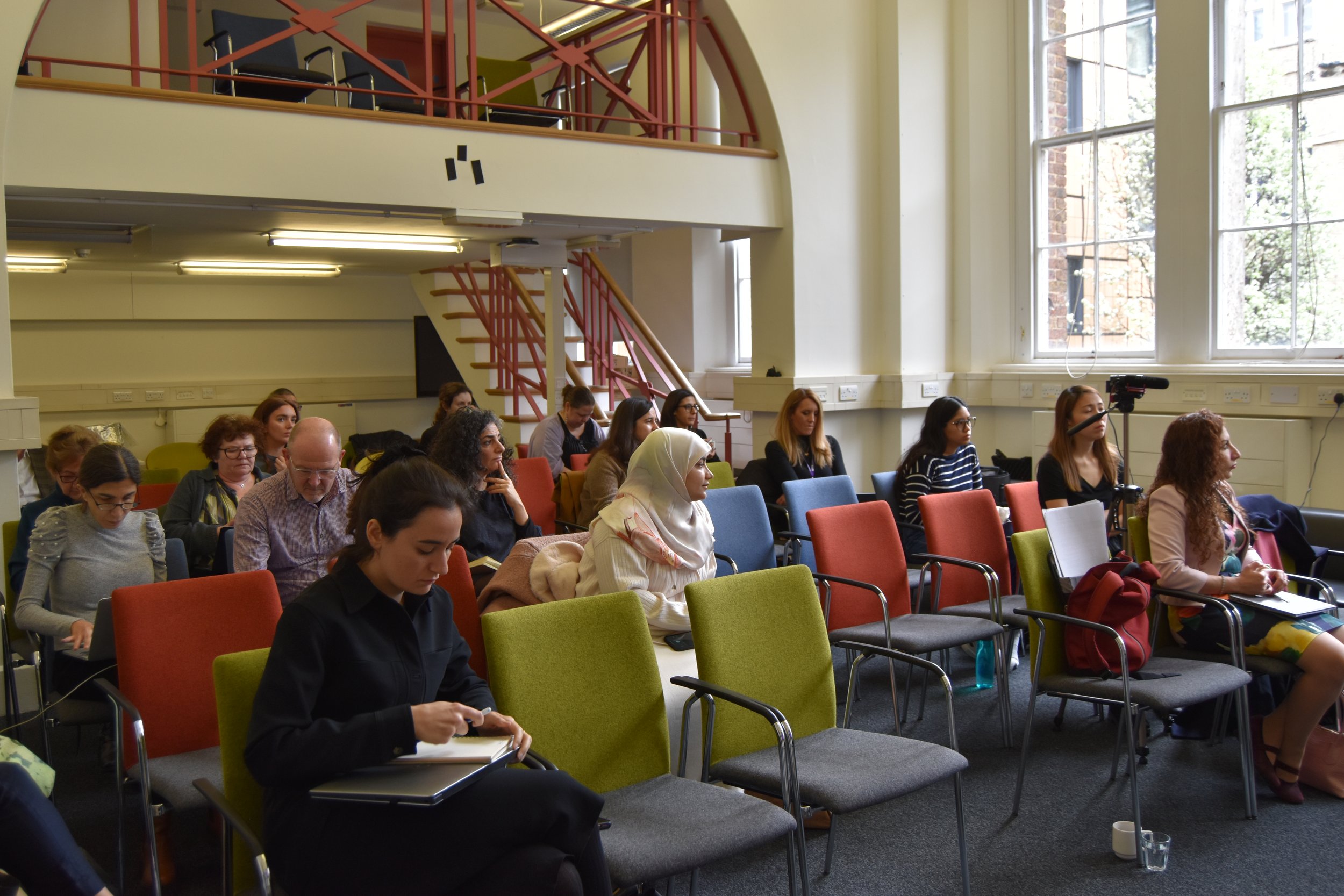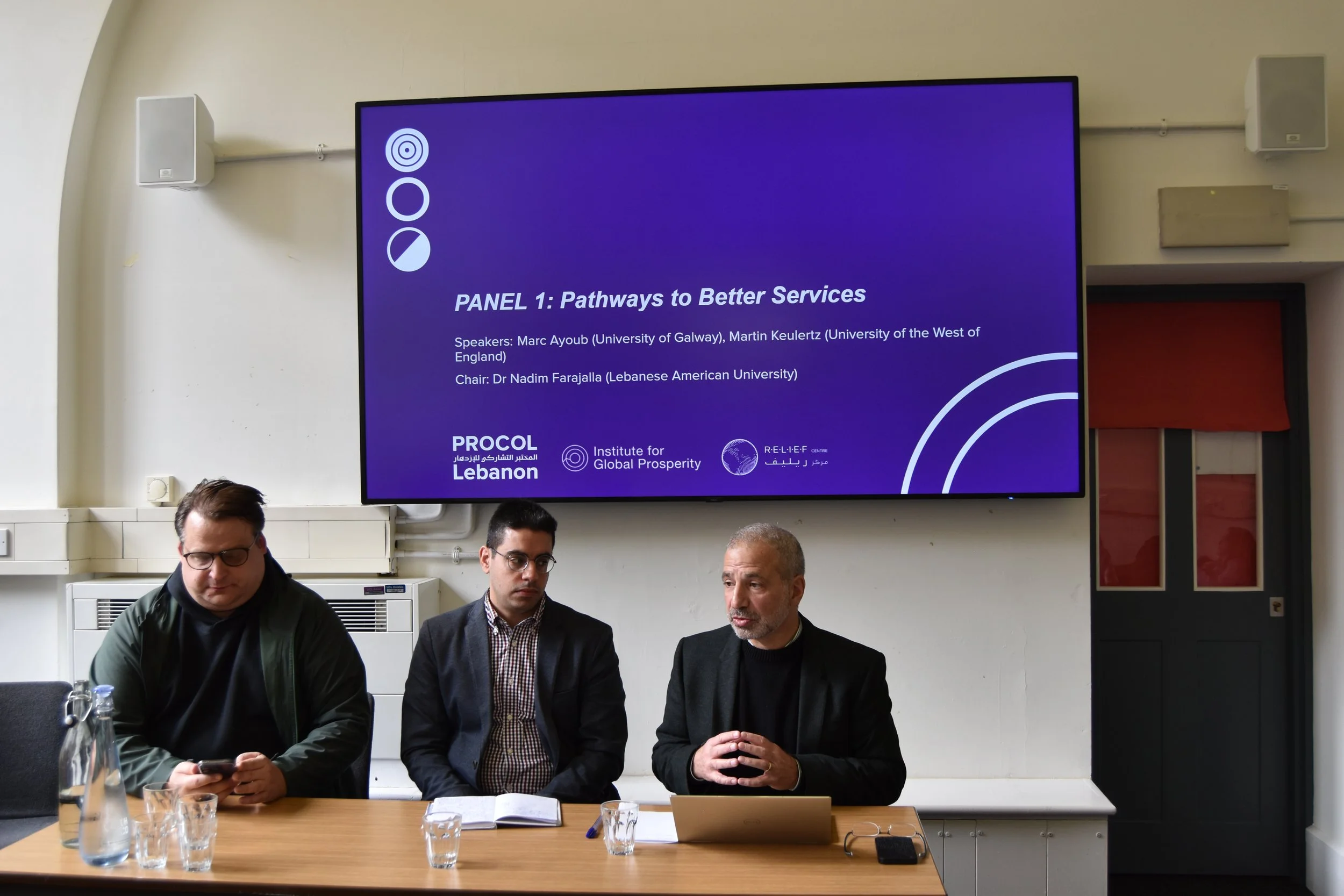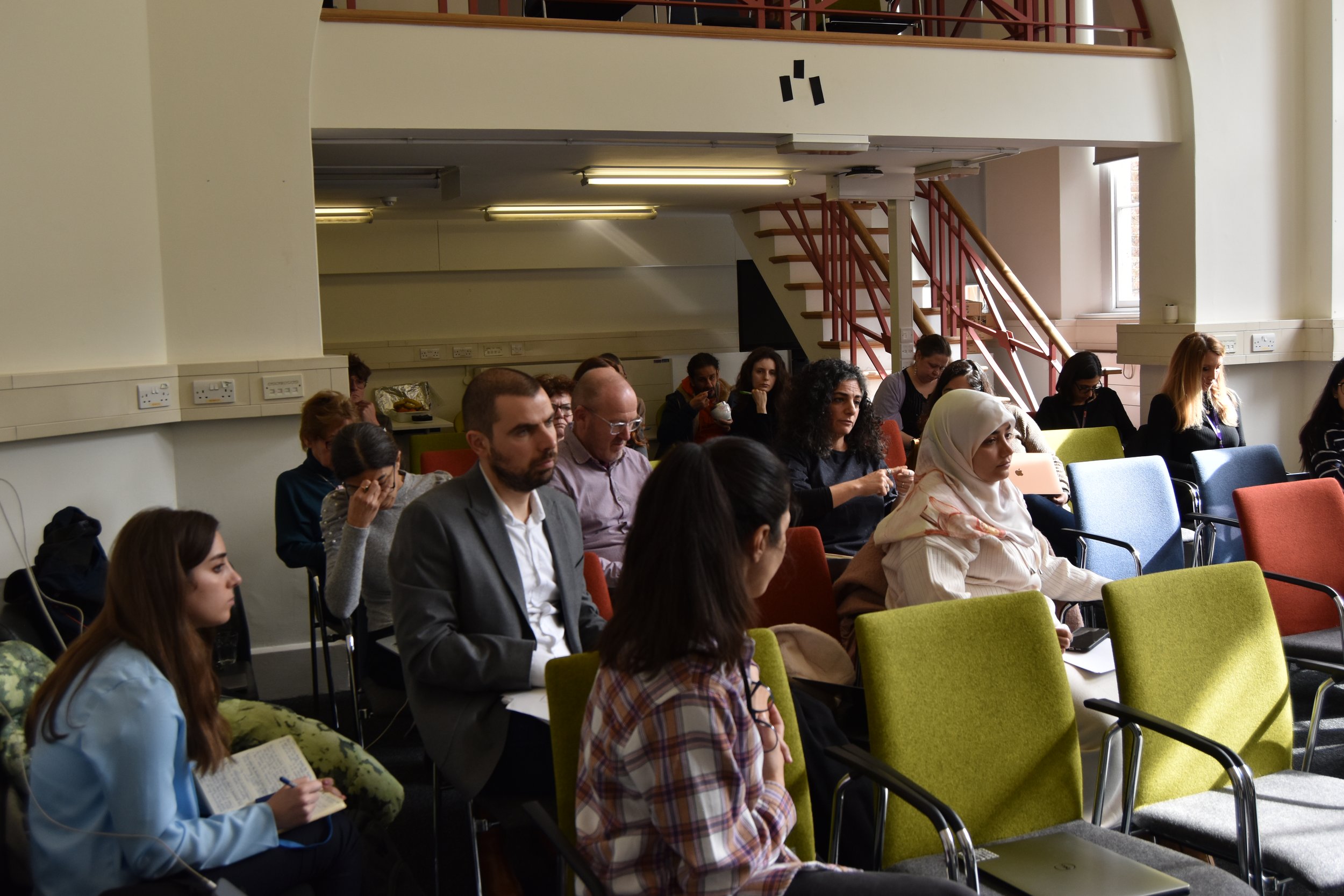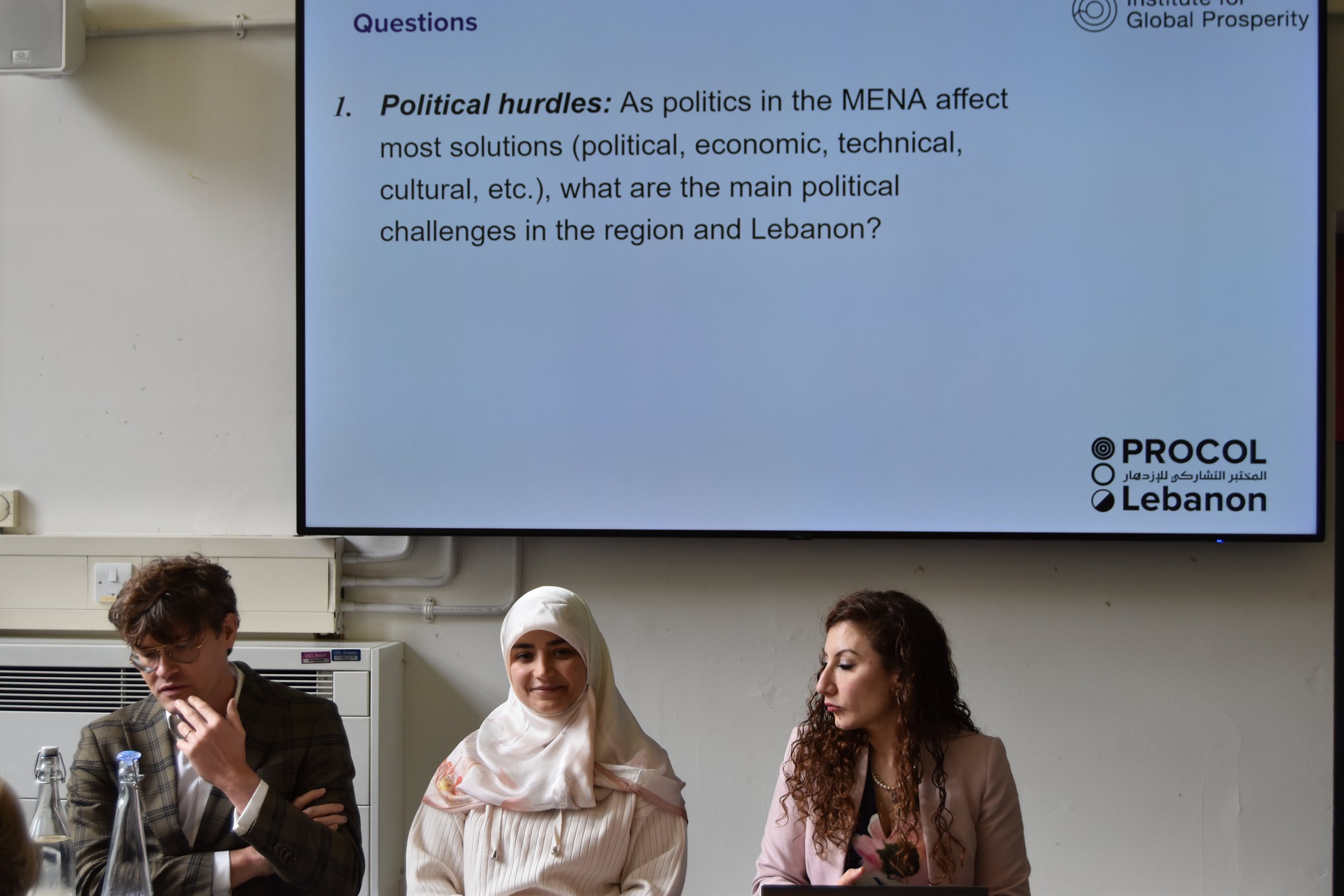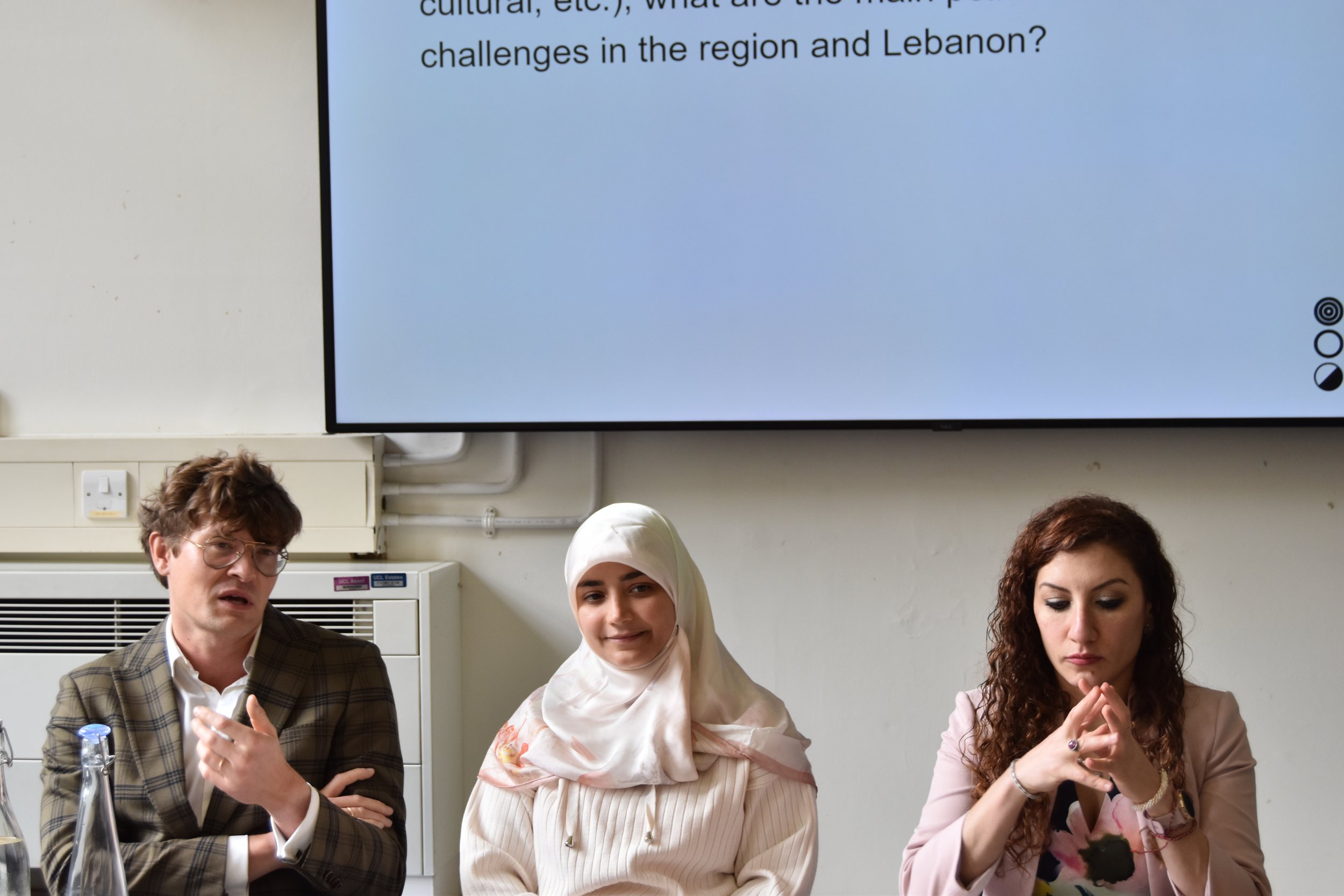Symposium: Green New Deal for Lebanon and MENA: A Transformative Approach
Welcome
Professor Henrietta Moore
Panel 1: Pathways to Better Services
Speakers: Marc Ayoub (University of Galway), Martin Keulertz (University of the West of England)
Chair: Dr Nadim Farajalla (Lebanese American University)
Panel 2: Pathways to Political and Economic Solutions
Chair: Dr Manal Shehabi (Oxford University)
Speakers: Nouhad Awwad (Greenpeace), Robert Rybski (University of Warsaw)
Green New Deal for Lebanon and MENA: A Transformative Approach
This seminar explores the key challenges and opportunities for developing a Green New Deal for Lebanon and the MENA region. The imminent threats of climate change call for a swift and comprehensive approach that combines sustainable economic development, decolonial politics, and ecological responsibility for a more equitable and resilient future for the region. Escalating temperatures, extreme weather events, and biodiversity loss are expected to cost the MENA region between 6 and 14 percent of regional GDP by 2050, according to the World Bank. Successful environmental recovery must start from a whole systems approach whereby the critical imperative to reduce material extraction and consumption is complimented with inclusive social and economic initiatives that improve human well-being and quality of life. Understanding environmental challenges through the lens of markets, while underestimating their entanglement with social and political factors, is becoming increasingly inadequate as the social and political costs of climate change increase. A Green New Deal for the twenty-first century must prioritise prosperity for communities through the delivery of good quality jobs, access to basic services, and mechanisms for meaningful democratic participation. This workshop will address a number of questions about the challenges facing politically, environmentally and socially sustainable development in Lebanon and the wider MENA region, and explore how different stakeholders can participate in creating a just transition adapted to regional complexities and local contexts.
